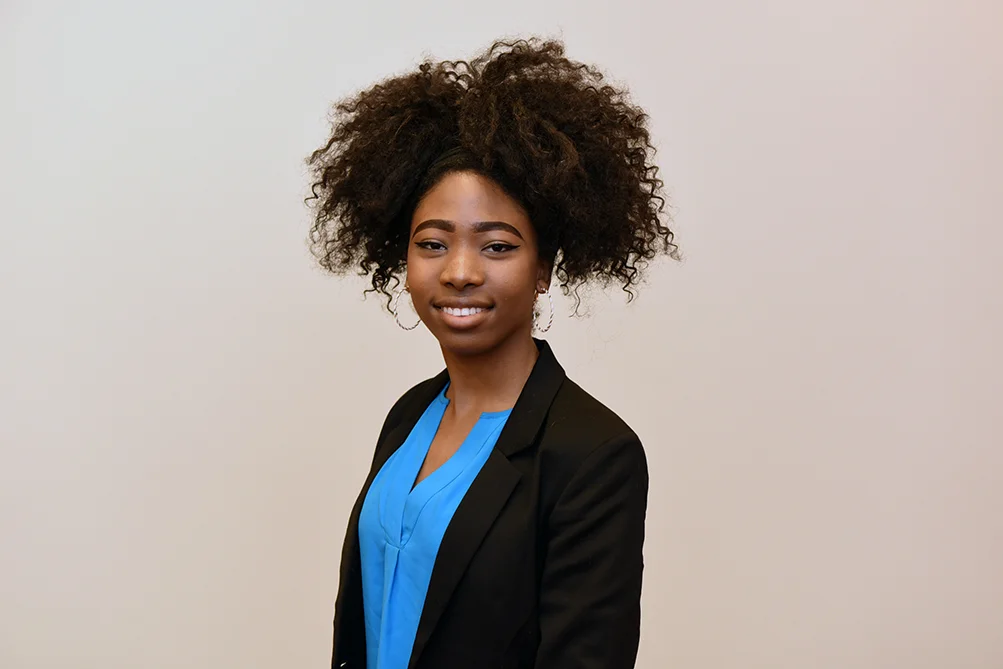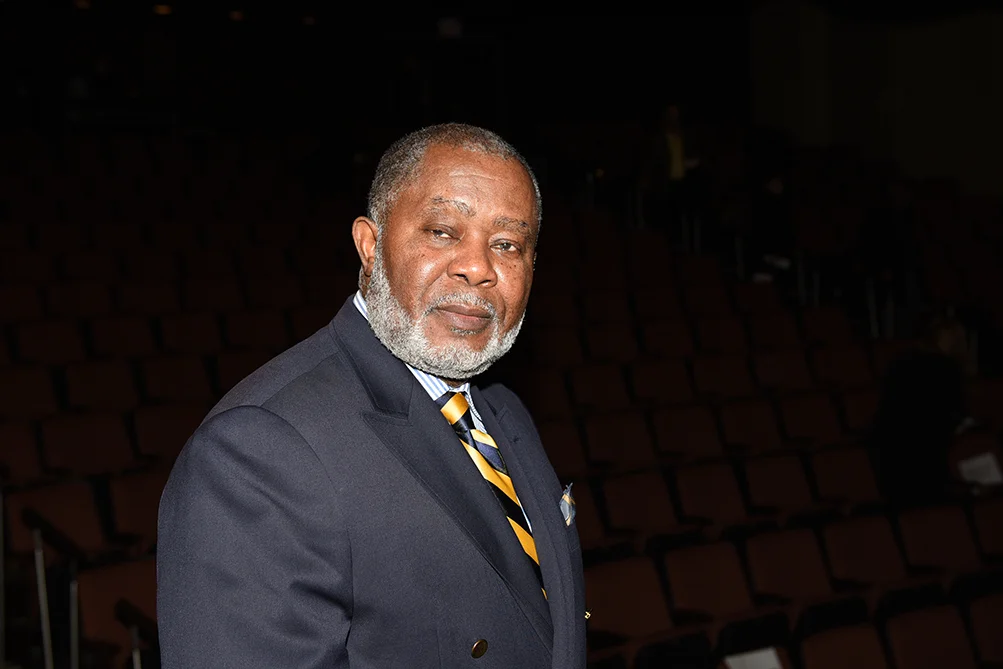Excellence in Black community recognized at BHM launch
February 2, 2017
That will change this Black History Month (BHM) as the principal has approved the Grade 10 student’s request for posters to be placed around the Mississauga school. In addition, significant moments in Black history will be announced over the public address system during the month of February.
Beaton admitted she didn’t know much about BHM until last year.
“At our school which is predominantly White, we talk about gender equality and gay rights,” she said. “I just felt I had to do something.”
Last month, Beaton sent a letter to Ontario Black History Society (OBHS) president Nikki Clarke seeking the organization’s support for her new school project.
Clarke read the note at last Sunday’s BHM kick-off at the Metro Toronto Convention Centre.
“We have never spoken about Black history at school,” Beaton, who aspires to be a veterinarian because she loves animals and medicine, pointed out. “This failure to acknowledge a whole race of people who have fought and lost so much should never go unnoticed. I believe it is an injustice that I and my peers are not being educated on the amazing contributions Black people have made to history.”
Celina Caesar-Chavannes, the new parliamentary secretary to Canada’s Minister of International Development, acknowledged Beaton’s leadership.
“I want you to know that you have a legion of women and men that will support you and that includes me,” the federal politician told the young girl. “I think it takes courage and conviction to do what you did. I am humbled to be standing in front of you because you are a true leader.”
OBHS president Nikki Clarke (l) and MP Celina Caesar-Chavannes
Established 38 years ago, the OBHS petitioned the City of Toronto a year later to have February proclaimed BHM. In December 1995, the Canadian parliament finally recognized February as BHM.
Since 1997, the OBHS has hosted an annual brunch and awards ceremony to kick off the month.
Caesar-Chavannes, the Member of Parliament for Durham, was presented with the Daniel Hill Memorial Award for Community Service.
Disgruntled with the United States after serving as a non-commissioned officer in the American Army during World War II, Hill – an Order of Canada recipient who passed away in 2003 -- brought his family to Canada just over six decades ago.
After completing his Master’s at the University of Toronto, he returned to the U.S for a year to teach sociology at Morgan State College in Baltimore and get married before returning to Canada for good in the summer of 1953.
Hill, the Ontario Human Rights Commission’s first full-time director and commissioner and a provincial ombudsman, and his wife Donna, along with some friends, co-founded the OBHS and authored significant writings. Dan Hill’s Freedom Seekers: Blacks in Early Canada received rave reviews while his wife’s book, A Black Man’s Toronto: The Reminiscences of Harry Gairey 1914-1980 comprised interviews with the community activist considered the patriarch of Toronto’s Black community.
“To receive an award in Dr. Hill’s name is quite significant because I am passionate about some of the things that he was a fierce advocate for, including equity,” Caesar-Chavannes said.
She shared the spotlight with Hill’s son, Lawrence Hill, who was the recipient of the Dr. Anderson Abbott Award for exemplary achievement.
Graduating from the Toronto School of Medicine in 1857, Abbott was the first Canadian-born Black medical doctor.
A former reporter with the Globe & Mail and parliamentary correspondent for The Winnipeg Free Press, Lawrence Hill’s award-winning novel, The Book of Negroes – first published in February 2007 – reached a rare milestone in September 2010, selling over 500,000 copies in Canada.
More than 800,000 copies have been sold in this country and the worldwide total is nearly a million.
Hill is a member of the Order of Canada and Canada’s Walk of Fame and a creative writing professor at the University of Guelph.
Television broadcaster Dwight Drummond proudly accepted the Mathieu Da Costa Award in the presence of his mother, Ermine Drummond, who came to Canada in 1972 to lay the foundation for her family. Da Costa was the first Black man known to have visited Canada.
“Mom is the bedrock,” he said. “She brought us here with the promise of opportunity. This award is for her.”
Dwight and Ermine Drummond
Migrating from Jamaica in 1976 at age nine and raised in Toronto Community Housing, Drummond graduated from Runnymede Collegiate Institute as an Ontario scholar and worked part-time at City TV as a security guard on ‘Electric Circus’ for two years before becoming a full-time staff member in 1991.
Seven years ago, he joined CBC as the co-host of the News Toronto supper hour newscast after spending two decades at City TV.
The family matriarch said her son has come a long way.
“I am really proud of him and happy that he likes what he does,” she added.
Buxton National Historic Site & Museum curator Shannon Prince and her husband, Bryan who is a historian and author, were presented with the Harriet Tubman Commitment to a Purpose Award while Charles “Spider” Jones received the Rose Fortune Award. She was Canada’s first Black law enforcement officer.
A gang member and convicted felon trapped in the criminal justice web without education and employable skills for much of his youth, Jones turned his life around to fulfill his dream of becoming a broadcaster.
Encouraged by his wife – Jackie Robinson-Jones – who told him he would work for ‘chump change’ for the rest of his life if he didn’t secure a decent job, the Grade Five dropout and three-time Golden Glove boxing champion returned to the classroom at age 30 to become an honour student, radio talk host show, author, motivational speaker and Premier of Ontario Award winner for outstanding achievement in the Arts.
A few years ago, Jones founded the ‘Believe to Achieve’ organization which assists youths between the ages of eight and 16 in after-school personal development and mentorship programs.
Sprinter Andre DeGrasse, who won three medals at last year’s Summer Olympics, was presented with the Olivier Le Jeune Trailblazing Award. Le Jeune was the first Black person known to have lived in Canada.
Several community leaders attended the kick-off, including Mayor John Tory who promised that a permanent facility in the city to celebrate Black history will become a reality.
“It’s a challenge because there are many ideas as to what it should be and where it should be,” he said. “To be candid, there seems to be many Black communities. I am not entirely sure sometimes when we sit down to plan this out who you should be listening to. The answer, I guess, is everybody. But I will tell you that by the time we come here next year, we will have made more measurable progress on establishing a place that, I hope, can be embraced by the entire community.”
Toronto has the largest concentration of Blacks in Canada accounting for nearly 8.5 per cent of the city’s population
Black History Month evolved from the work of American scholar Dr. Carter Woodson who, in an attempt to spread the concept of African-American history, suggested its celebration during a week in the middle of February.
That month was chosen because it’s the birth month of Abraham Lincoln and the chosen birth month of Frederick Douglass who was born a slave and therefore was unsure of his actual birth date.








